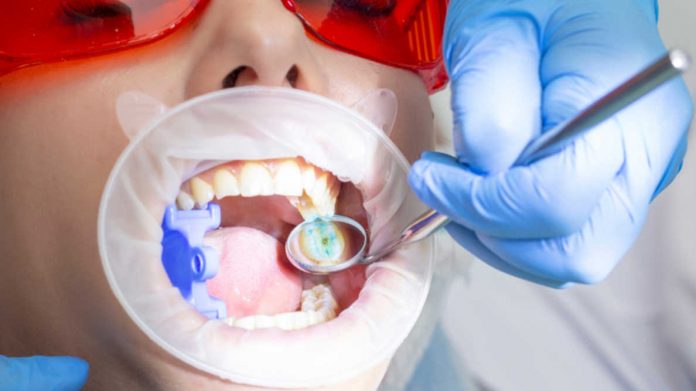Dental caries is also referred to as cavities or tooth decay. It’s one of the most common dental problems and yes, it’s entirely preventable. Cavities can form on the teeth for any reason and bacteria is one of them. Poor oral hygiene could also be the cause behind dental caries. The bacteria in the mouth will break down the foods we eat and produce acids and the acids can damage the hard tissue of the teeth.
If treated timely, cavities are preventable and if not, they can damage the tooth structure and might lead to tooth decay of severing nature over time. Cavities, however, are common in children, teens and older adults, but they can get to anyone who has teeth, including kids. Untreated cavities have the potential to affect deep layers of the teeth leading to severe type of toothache, infection and ultimately tooth loss. It will affect your overall appearance so don’t hesitate to get beautiful smiles in Boynton Beach.
Right food choices and regular brushing and flossing can help keep cavities at bay. Consulting the dentist can also help prevent cavities easily.
Symptoms
The signs and symptoms of cavities can vary as per their extent and location. No signs at all are visible when a cavity starts to form but signs start appearing when the decay starts getting bigger in size and scale.
Some of signs and symptoms may include –
-
Toothache ranging from mild to severe nature
-
Spontaneous pain that occurs without any cause
-
Tooth sensitivity when eating or drinking something cold, hot or sweet
-
Small yet visible holes or pits in the teeth
-
Staining on the tooth surface that can range from black to brown to white in shade
-
Pain in biting something
Causes
Poor oral hygiene, sugary foods, sticky items are some of the major causes of cavities. Sugar is perhaps the biggest culprit in increasing the risk of caries and if its consumption is not complemented with better oral hygiene, then cavities can strike to people of any age group easily.
Here are some of the causes of cavities –
-
Not brushing and flossing the teeth regularly can lead to cavities
-
Lack of oral hygiene helps plaque to grow and attack the enamel
-
The acid in plaque is responsible for causing cavities as it weakens the enamel and leads to holes in the teeth
-
Dry mouth can also cause cavities as lack of saliva in the mouth when plaque may build up as there is nothing to wash them out
-
Foods that are sugary and sticky in nature can increase the risk of cavities
-
Not brushing the teeth after eating or drinking sugary items can cause plaque formation
-
Too much consumption of dried fruit, hard candy, cookies, raisins and then not rinsing the mouth can also lead to caries
Treatment
The dentist will use one of four treatment options fillings, root canal, crowns or extraction to treat the problem of cavities. The selection of right methods depends on the location and severity of the problem at hand.
Here are treatment options for cavities –
1. Fillings
Fillings are easily the most used treatment for cavities. During the treatment, the dentist will first drill into the affected teeth, remove the decayed part and then seal the space with a right filling material. The selection of the material will be done in the area where cavities have occurred. Composite resin is the most used filling material while for back teeth, the dentist may also use other materials for superior strength.
2. Crowns
Crowns are another treatment option which is mostly used in cases where cavities have damaged or destroyed a large part of the tooth. Cracks and breakage are possible when large fillings are done and that’s why the dentist will first salvage the tooth, repair it before doing the treatment. The tooth will be fitted with an alloy or porcelain crown covering for help. This treatment is also quite common and has no risks.
3. Root Canal
When the cavities have advanced to reach in the centre of the tooth, the root canal is the only treatment left for help. This option is the best fit when the cavities have damaged the nerves in the root. The dentist will first remove the dead nerve and then fill the area before placing a crown over the affected tooth. Today, pain-free root canal treatment is a reality and you can also expect less discomfort with the treatment.
4. Extraction
Extraction becomes the last option in cases where cavities have caused damage beyond repair. This treatment is also done to prevent the risk of infection from spreading to other areas, including the jaw bone. After extraction, the dentist may use bridge, partial denture or implant to prevent any alignment concerns. You can consult a top dentist near my location to know about the best treatment options for cavities. This will help you stay on top of your dental health forever.



































































